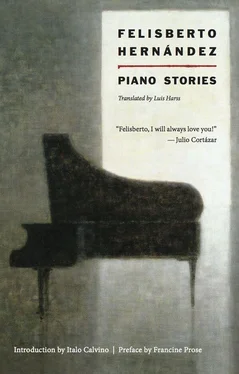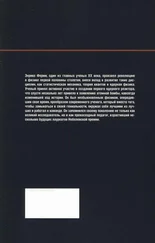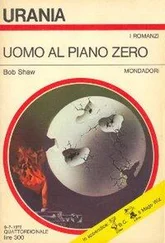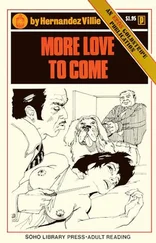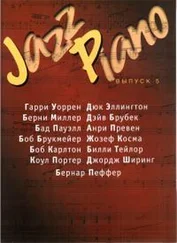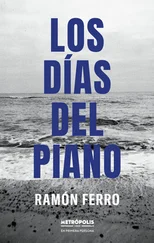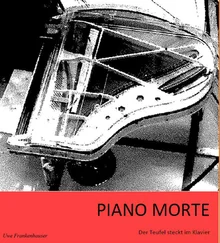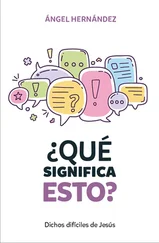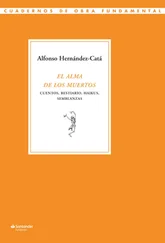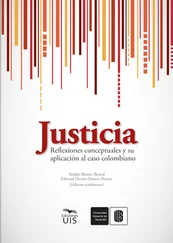Felisberto Hernandez - Piano Stories
Здесь есть возможность читать онлайн «Felisberto Hernandez - Piano Stories» весь текст электронной книги совершенно бесплатно (целиком полную версию без сокращений). В некоторых случаях можно слушать аудио, скачать через торрент в формате fb2 и присутствует краткое содержание. Год выпуска: 2014, Издательство: New Directions, Жанр: Современная проза, на английском языке. Описание произведения, (предисловие) а так же отзывы посетителей доступны на портале библиотеки ЛибКат.
- Название:Piano Stories
- Автор:
- Издательство:New Directions
- Жанр:
- Год:2014
- ISBN:нет данных
- Рейтинг книги:4 / 5. Голосов: 1
-
Избранное:Добавить в избранное
- Отзывы:
-
Ваша оценка:
- 80
- 1
- 2
- 3
- 4
- 5
Piano Stories: краткое содержание, описание и аннотация
Предлагаем к чтению аннотацию, описание, краткое содержание или предисловие (зависит от того, что написал сам автор книги «Piano Stories»). Если вы не нашли необходимую информацию о книге — напишите в комментариях, мы постараемся отыскать её.
Piano Stories
Piano Stories — читать онлайн бесплатно полную книгу (весь текст) целиком
Ниже представлен текст книги, разбитый по страницам. Система сохранения места последней прочитанной страницы, позволяет с удобством читать онлайн бесплатно книгу «Piano Stories», без необходимости каждый раз заново искать на чём Вы остановились. Поставьте закладку, и сможете в любой момент перейти на страницу, на которой закончили чтение.
Интервал:
Закладка:
He also stood on his dignity:
“I won’t call the police because you have been my guest. But you have betrayed my trust. I leave it to your honor to make amends.”
At that point I began to think of insults. The first one that came to mind was “hypocrite.” I was looking for something else when one of the glass cases burst open and a mandolin fell out. We all listened attentively to the clang of the box and strings. Then the host turned and headed for his private door. The butler, meantime, had gone to pick up the mandolin. It was a moment before he could bring himself to touch it, as if he thought it might be haunted, although the poor thing looked as dried-out as a dead bird. I turned as well and started across the dining room with ringing steps: it was like walking inside a sound box.
The next several days I was very depressed and lost my job again. One night I tried to hang my glass objects on the wall, but they looked ridiculous. And I was losing my light: I could barely see the back of my hand when I held it up to my eyes.
Except Julia
My last year in school I kept seeing a big curly head leaning back against a green wall. The boy’s black curls — the green was oil paint — weren’t that long, but they had spread like creepers, invading his pale brow, covering his temples and spilling over his ears and down his neck into the collar of his blue velour jacket. He always kept very still and almost never studied or did his homework. Once, when the teacher sent him home and she needed someone to go with him and ask his father to come in for a talk, I stood up and volunteered. She was surprised anyone would take on such an unpleasant task. Then she suspected the truth — that I had a plan to rescue him — and began trying to guess our intentions and impose conditions on us. But the minute we were out the door we headed for the park, swearing we would never go back to school.
One morning last year my daughter had me wait at a corner while she ran into a variety store. When she took too long I went in after her and discovered that the owner of the shop was my childhood friend. We started to chat and my daughter had to leave without me.
From the depths of the shop, up an aisle toward us, came a girl carrying something. My friend was telling me he had spent most of his life in France. Over the years, he, too, had often remembered the ways in which we used to trick our parents into thinking we were in school. Now he lived alone, but four girls — in whom he took a fatherly interest — waited on him in the shop. The one coming up the aisle handed him a pill and a glass of water. He swallowed the pill and went on:
“They’re very good to me. They don’t mind my. .”
His voice broke off and his hand fluttered around, not knowing where to settle, but his face had formed a smile.
I said, a bit in jest:
“Listen, if there’s anything. . strange bothering you, I know a doctor, a friend of mine. .”
He didn’t let me finish. His hand had landed on the edge of a jar. He raised his forefinger, which seemed about to break into song, and said:
“I love my. . illness more than life. If I ever thought I might get well it would kill me.”
“But. . what is it?”
“Maybe some day I’ll tell you. If you turned out to be one of those persons who can aggravate my. . illness, I’d give you that chair with mother-of-pearl inlays that your daughter liked so much.”
I looked at the chair — and for some reason I thought my friend’s illness was seated on it.
The day he decided to tell me about his illness was a Saturday. He had just locked up for the weekend. We went to catch an out of town bus, followed by the four girls and a man with sidewhiskers I had seen doing accounts at a desk in the rear of the shop.
“We’re going out to my country place,” he said. “If you want to find out about the matter we were discussing, you’ll have to stay overnight.”
He stopped to give the others a chance to catch up and introduced them to me. The man with the sidewhiskers was called Alexander. He kept his eyes lowered, like a lackey.
When we had left the city behind and the trip was becoming monotonous, I asked my friend for a preview. .
He laughed and finally said:
“It all happens in a tunnel.”
“Will you let me know when we’re coming to it?”
“No, not one of those. This one’s on my property. We’ll walk through it. Later, at night. The girls will be waiting for us inside, kneeling on prayer stools along the left wall and wearing dark shawls. Along the right wall there’ll be a long row of objects on an old counter. I’ll touch the objects and try to guess what they are. I’ll also touch the girls’ faces, imagining I don’t know them. .”
He fell silent for a moment. He had held out his hands, as if expecting objects or perhaps faces to come within reach. When he became aware of his own silence he gathered up his hands in a way that reminded me of heads drawing back from a window. He seemed about to go on with his explanation but said only:
“You understand?”
I barely managed to say:
“I can try.”
He gazed out at the scenery. I stole a look back at the girls’ faces: they were innocent, evidently unaware of what we were discussing. A second later I nudged his elbow and said:
“If they’re in the dark, why do they wear shawls?”
He answered absently:
“I don’t know. . I just like it that way.”
And he went on staring at the scenery.
I, too, was looking out the window, but with an eye on his dark head, which hung suspended like a still cloud on the edge of the sky. I kept thinking of the places under other skies it had visited. Now that I knew of the tunnel it had in mind I understood it differently. Perhaps on those mornings in school when he rested his head against the green wall a tunnel was already forming on it. I wasn’t surprised I hadn’t known about the tunnel when we were playing hooky in the park. But, just as I had followed him then without understanding, I would have to do the same now. In any case, we still sympathized — and I hadn’t yet learned much about human nature.
The noises of the bus and the sights going by outside the window distracted my attention, but every now and then I couldn’t help thinking of the tunnel.
By the time he and I reached the property, Alexander and the girls were pushing open an iron gate. The leaves dropping from the tall trees had piled up on the bushes, which were like cluttered wastepaper baskets, and over gate and trees hung a sort of rusty dampness that seemed to be closing in on us. As we picked our way along paths between small plants an old house came into view, deep in the garden. When we approached it the girls let out cries of distress: next to the front steps lay a broken lion that had fallen off the terrace.
It was a house full of inviting corners, but to discover them I would have had to be alone and spend a long time in each place.
From the lookout tower I saw a trickling stream. My friend said:
“You see that closed shed with the large carriage door? That’s where the mouth of the tunnel is hidden. It runs in the same direction as the stream. And you see the arbor out back, near those other steps? That’s where the tunnel comes out.”
“And how long does it take you to go through it? I mean, when you’re touching the objects and faces. .”
“Oh, not long. In an hour it’s swallowed us up and digested us. But afterward I stretch out on a couch and go over the things I remembered and the things that happened to me in there. I can’t talk about it now: the light’s too strong and spoils my picture of the tunnel. It’s like when light enters a camera before the images are fixed. While I’m inside the tunnel I can’t stand even a trace of this light: everything loses its magic, like theater sets the morning after.”
Читать дальшеИнтервал:
Закладка:
Похожие книги на «Piano Stories»
Представляем Вашему вниманию похожие книги на «Piano Stories» списком для выбора. Мы отобрали схожую по названию и смыслу литературу в надежде предоставить читателям больше вариантов отыскать новые, интересные, ещё непрочитанные произведения.
Обсуждение, отзывы о книге «Piano Stories» и просто собственные мнения читателей. Оставьте ваши комментарии, напишите, что Вы думаете о произведении, его смысле или главных героях. Укажите что конкретно понравилось, а что нет, и почему Вы так считаете.
